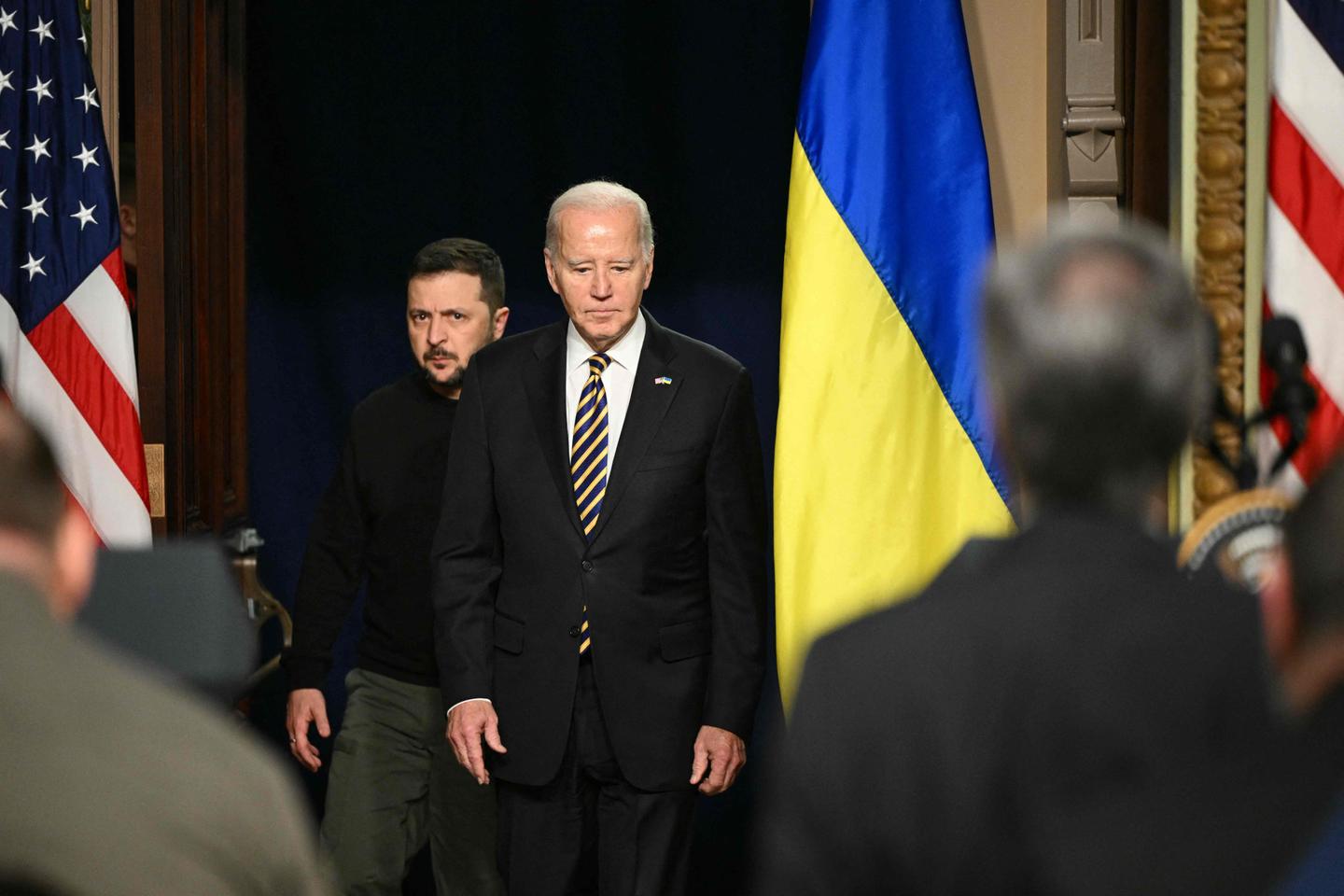


Do the United States' strategic interests stop at the border with Mexico? The Republican Party, no longer the party of Ronald Reagan, seems convinced of this. The need to combat illegal immigration transiting through Central America is the reason put forward by Republicans in Congress for blocking crucial military aid for Ukraine. President Joe Biden considers it imperative that Kyiv should benefit from this aid as the country enters a second winter under the constant threat of indiscriminate Russian bombing, devastating civilians.
The replacement of Kevin McCarthy by Mike Johnson as speaker of the House of Representatives, following blackmail by a Trumpist minority, has made the matter even more complex. This inexperienced leader claims to draw his worldview from the Bible. There are more substantiated treatises on geopolitics.
To counter the arguments of Ukrainian President Volodymyr Zelensky, who pleaded his country's cause on December 12 during his second visit to the United States in less than four months, the Republicans highlight a new American "fatigue" – a view for which they praised by the Kremlin, which is rarely a certificate of patriotism.
According to a poll published by the Financial Times on December 10, almost half of American voters (48%) think the US is already spending too much money to help Ukraine. Republican voters, at 63%, think even more so, compared with 32% of Democrats. The American public's very gloomy perception of the state of its economy, belied by numerous macroeconomic indicators, has certainly contributed to this.
Ukraine's failing counter-offensive
The reluctance to support a country under attack is a sign of the influence of Donald Trump, who is constantly speaking of the greatness of an America confined within its borders and sees many positives in authoritarian regimes. However, in more ways than one, it's a poor calculation. If recent history is any guide, it is clear that any Western weariness will be interpreted by Putin as an invitation to prolong the fighting in the hope that it will turn to his advantage.
Ukraine's failing counter-offensive that began before the summer has weighed on the determination of Kyiv's allies, but the option of negotiating with the master in Moscow will remain illusory as long as Ukraine enters into it from a position of weakness. Putin is too locked into a paranoid vision of his relationship with the West to engage in a dialogue designed to best serve the strategic interests of both sides.
He demonstrated this once again a few days ago when he welcomed the fact that Ukraine had "run out of ammunition" and concluded that they had no "future." The leader who has sacrificed Russia's long-term future by turning it completely into a war economy offers his citizens no other prospect than a fifth presidential term, one guaranteed by a sham election. By stubbornly refusing to help Ukraine, Republicans are siding with Putin and fueling the accusations of inconsistency brought against democracies by dictatorships.
